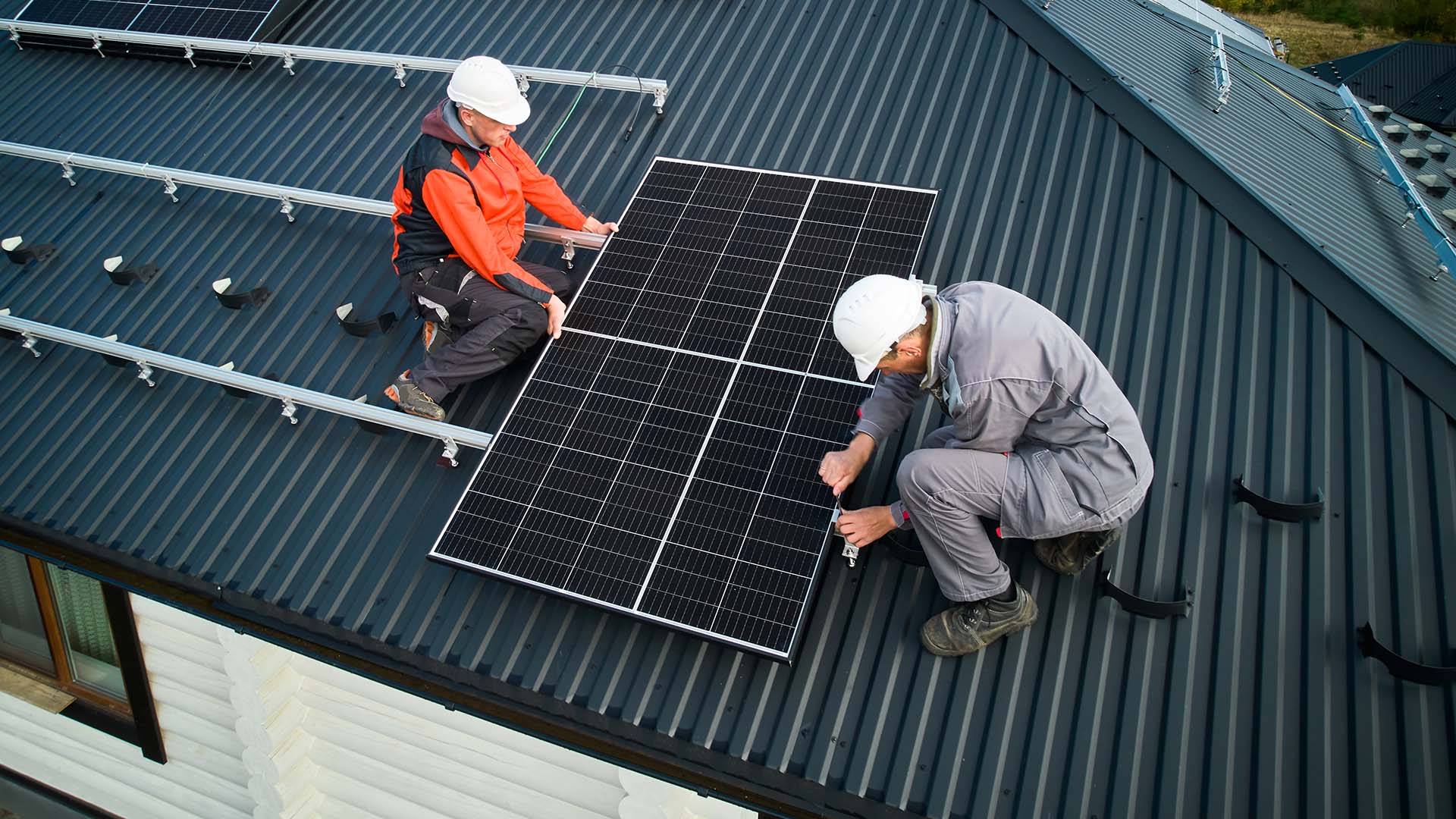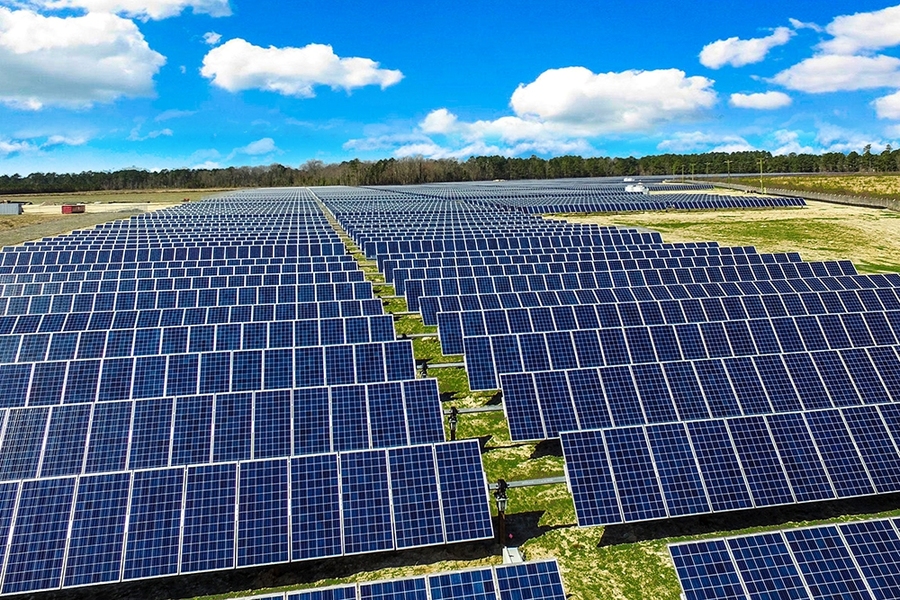Learn why so many homeowners are switching to energy-efficient Solar Panels.
Learn why so many homeowners are switching to energy-efficient Solar Panels.
Blog Article
Maximize Energy Savings With High-Quality Solar Panels
Making the most of power savings via making use of top notch solar panels is a multifaceted technique that requires mindful consideration of modern technology, setup, and upkeep. Picking high-efficiency options, such as monocrystalline panels, can considerably improve electrical power generation, while sturdiness and warranty terms play an important function in lasting financial viability. In addition, comprehending the possibility for federal government rewards can enhance the roi. The trip does not finish with the acquisition; the subtleties of setup and continuous maintenance are just as essential to attaining optimal results. What variables should house owners prioritize to ensure they recognize these advantages fully?
Benefits of Solar Energy
The advantages of solar power are many and substantial, making it a progressively appealing alternative for both domestic and business applications. One of the primary advantages is its potential to minimize electricity bills. By utilizing sunlight, residential or commercial property owners can generate their own power, reducing dependence on traditional energy sources and ultimately leading to considerable savings.
Another crucial benefit is environmental sustainability. Solar power is a clean, renewable resource that aids to mitigate greenhouse gas discharges, adding to a decrease in air pollution and climate change. This lines up with global efforts to transition towards more lasting power remedies.
Furthermore, solar power systems can enhance residential or commercial property value. Houses and companies furnished with photovoltaic panels frequently have higher resale values, appealing to environmentally-conscious purchasers and financiers. Government rewards, such as tax credit scores and refunds, can counter installment expenses, making solar power also more financially viable.
Finally, solar innovation promotes power self-reliance. By buying solar energy, individuals and companies can decrease their vulnerability to fluctuating energy costs and supply interruptions, fostering better control over their energy sources. Collectively, these benefits highlight the engaging factors to consider solar power solutions.
Selecting the Right Solar Panels
Selecting the best photovoltaic panels is an important action in taking full advantage of the performance and advantages of a solar power system. When reviewing solar panels, several elements should be thought about to ensure optimal performance and long-term financial savings.
First, examine the panel's efficiency rating, which shows how efficiently it converts sunshine into electricity. Higher efficiency panels may have a greater ahead of time cost yet can create more power in restricted room. Next off, take a look at the guarantee provided by the manufacturer; a longer service warranty generally reflects a higher degree of self-confidence in the product's durability and performance.
In addition, consider the kind of solar panel technology. Monocrystalline panels are known for their high effectiveness and space-saving layout, while polycrystalline panels have a tendency to be a lot more budget-friendly however somewhat less reliable. Bifacial panels, which capture sunshine from both sides, are additionally acquiring appeal for their prospective to boost power result.
Finally, perform a complete testimonial of independent efficiency ratings and customer reviews to determine integrity and contentment. By carefully thinking about these aspects, house owners can make enlightened choices that line up with their power requirements and monetary objectives, eventually boosting the return on financial investment for their solar power systems.
Recognizing Installment Costs
Comprehending the expenses connected with setting up photovoltaic panels is essential for homeowners looking to purchase renewable resource. The general setup expense can differ considerably based on a number of aspects, including system size, panel kind, installation intricacy, and geographic location.
Typically, the expense is relied on a per-watt basis, with average prices ranging from $2.50 to $3.50 per watt before any type of incentives. A conventional domestic system may cost in between $15,000 and $25,000, depending upon power requirements and the selected elements.
Along with the panels themselves, house owners ought to think about expenses associated with inverters, placing hardware, and electric upgrades. Labor expenses likewise play a critical duty, as expert installation ensures compliance with safety requirements and local guidelines.

Eventually, understanding these setup costs and possible economic advantages is vital for homeowners to make educated decisions about transitioning to solar power.

Maintenance for Long-Term Cost Savings
Maintaining photovoltaic panels is critical for taking full advantage find of lasting energy cost savings and making sure the system runs at peak effectiveness. Regular upkeep involves numerous key methods that can dramatically improve the long life and efficiency of solar setups.
First, regular examinations must be carried out to determine any physical damages or wear, such as splits or loosened connections. Cleaning the panels is also important, as dirt, dirt, and debris can block sunshine, lowering energy output (Solar Panels). It is suggested to cleanse the panels at least twice a year, or a lot more often in areas with high levels of dirt or contamination
Additionally, keeping track of the system's efficiency via a monitoring software application can give real-time data on energy production and alert property owners to any type of anomalies. This aggressive approach permits timely repairs, minimizing downtime and preserving optimal power generation.
Environmental Influence of Solar Power
The ecological influence of solar power extends much beyond its immediate advantages of reducing electrical power expenses and reliance on nonrenewable fuel sources. By harnessing sunshine, solar energy dramatically reduces greenhouse gas exhausts, thereby mitigating climate change. Unlike traditional power resources such as coal or natural gas, solar power generation does not generate air contaminants, adding to boosted air top quality and public health and wellness.
Moreover, solar power advertises biodiversity by reducing the need for fossil gas extraction, which usually interrupts ecological communities and environments. By transitioning to renewable resource sources, we can protect all-natural landscapes and secure jeopardized types from habitat loss.
The life more tips here cycle of photovoltaic panels also offers a reduced ecological impact compared to conventional energy sources - Solar Panels. While manufacturing photovoltaic panels involves some source usage and exhausts, advancements in modern technology and reusing processes are continually minimizing these impacts. Furthermore, the long-lasting advantages of solar power-- such as reduced reliance on finite resources-- much exceed these preliminary expenses
Verdict
In summary, the adoption of high-grade photovoltaic panels presents substantial chances for power savings and environmental advantages. By choosing ideal technologies, such as monocrystalline panels, and making certain reliable setup, home owners can maximize power generation in minimal spaces. Furthermore, comprehending installment prices and maintenance demands further adds to long-term savings. The calculated placement of solar panel selections with energy needs and federal government motivations boosts return on investment, promoting sustainability and decreasing reliance on standard energy sources.
Report this page